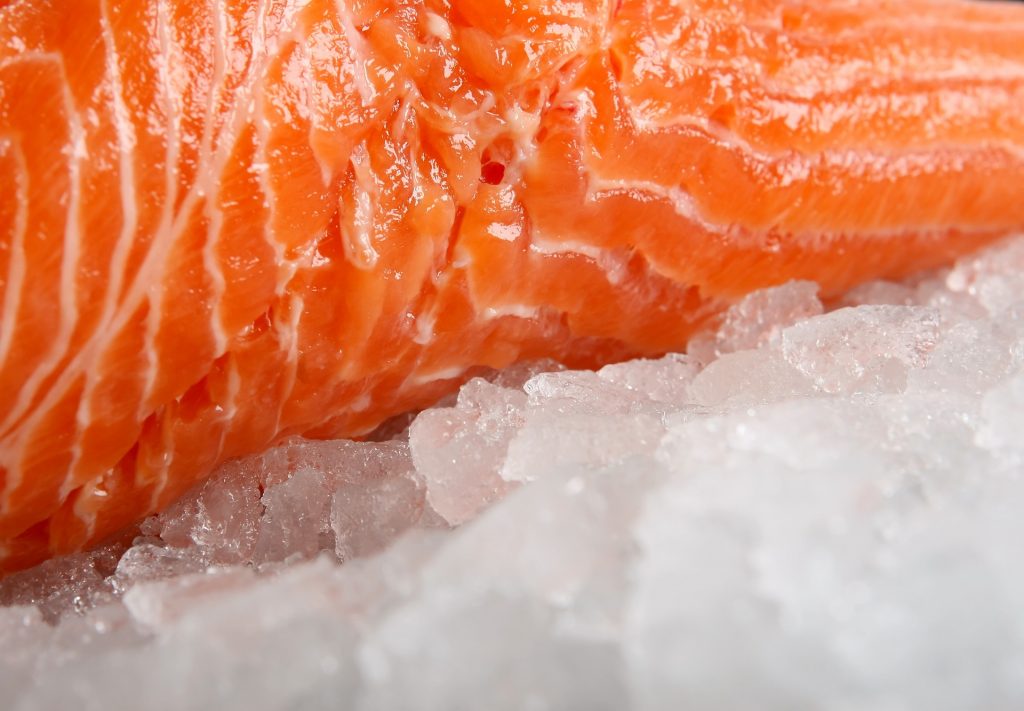 Humans require two essential fatty acids. These essential fatty acids are alpha linolenic acid (ALA, C18:3 (n-3)), an omega 3 fatty acid, and linoleic acid (LA, C18:2 (n-6)) an omega 6 fatty acid. These fatty acids are metabolised to a number of short lived hormone molecules called eicosanoids, and these are used by cells to regulate metabolic activity. The balance of omega 3 to omega 6 fatty acids in the diet is pivotal to health, with estimates suggesting that for every 3 grams of linoleic acid there must be 1 gram of alpha linolenic acid. As this ratio becomes unbalanced, health problems occur, and these centre on the development of inflammation in tissues caused by the imbalanced production of eicosanoids. Consuming the typical Western diet produces pro-inflammatory conditions because the diet contains too much omega 6 fat and too little omega 3 fat. This results because omega 3 fatty acids are present in a limited number of foods, mostly nuts, seed and green leafy vegetables, which are not commonly consumed.
Humans require two essential fatty acids. These essential fatty acids are alpha linolenic acid (ALA, C18:3 (n-3)), an omega 3 fatty acid, and linoleic acid (LA, C18:2 (n-6)) an omega 6 fatty acid. These fatty acids are metabolised to a number of short lived hormone molecules called eicosanoids, and these are used by cells to regulate metabolic activity. The balance of omega 3 to omega 6 fatty acids in the diet is pivotal to health, with estimates suggesting that for every 3 grams of linoleic acid there must be 1 gram of alpha linolenic acid. As this ratio becomes unbalanced, health problems occur, and these centre on the development of inflammation in tissues caused by the imbalanced production of eicosanoids. Consuming the typical Western diet produces pro-inflammatory conditions because the diet contains too much omega 6 fat and too little omega 3 fat. This results because omega 3 fatty acids are present in a limited number of foods, mostly nuts, seed and green leafy vegetables, which are not commonly consumed.
One way to address this problem is to lower the omega 6 fatty acid content of the diet by avoiding vegetables oils rich in LA. However, there must also be an effort to increase the omega 3 fatty acids. Increasing foods rich in ALA is also therefore beneficial, but can be difficult for two reasons. One reason is that ALA containing foods are limited, and the other is that some people do not efficiently convert ALA to the required eicosanoids because of genetic deficiency of the conversion enzyme (delta 6-desaturase). A better solution is to incorporate fatty fish into the diet because fish manufacture eicosapentaenoic acid (EPA, C20:5 (n-3)) and docosahexaenoic acid (DHA, C22:6 (n-3)) which are metabolites of ALA and can feed into the pathway past the point of the delta 6-desaturase enzyme. However fatty fish and their oils have been shown to contain high amounts of pollutants including polychlorinated biphenyls (PCB) and organochlorine (OC) pesticides, and this may lessen the health effects of the oils.

Fish is often contaminated through a process called bioaccumulation. In this process, as food moves up the food chain, it concentrates toxins within its tissues. Plankton is therefore relatively pollution free as it is at the bottom of the food chain. However, other organisms consume so much plankton that they start to concentrate the toxins. Organisms that then eat these organisms further concentrate the toxins. Cold water fish are near the top of the food chain and so have much higher concentration of toxins compared to other organisms. Many toxins are fat soluble and so concentrate in the oils of cold water fish. Consuming polluted sources of fish oil may increase oxidative stress and lead to lipid peroxidation. Farmed salmon is particularly polluted and should be avoided where possible. However, the oils do have health benefits. Therefore finding unpolluted sources is the best solution.
For example, one study investigated the effects of fish oil supplementation on rats1. The rats consumed either fish oil, fish oil containing PCB and OC (at 2.40 and 3.40 μg/g, respectively) or coil oil, all at a dose 15 % fat by body weight. The researchers then measured a number of parameters in the rats to see how they responded to the fats. The results showed that after 9 weeks there was an accumulation of PCB and OC compounds in the fat tissue of the rats fed contaminated fish oils. Both fish oil groups showed elevations in high density lipoprotein (HDL) and reductions in triglycerides, low density lipoprotein (LDL) and C-reactive protein compared to the corn oil group. However the rats consuming contaminated fish oils showed increased lipid peroxidation and lower antioxidant status compared to the non-polluted fish oil and corn oil groups. Therefore these results suggest that fish oils contaminated with PCB and OC compounds provide some beneficial effects on blood lipids, but also detrimental effects on antioxidant status.
RdB
